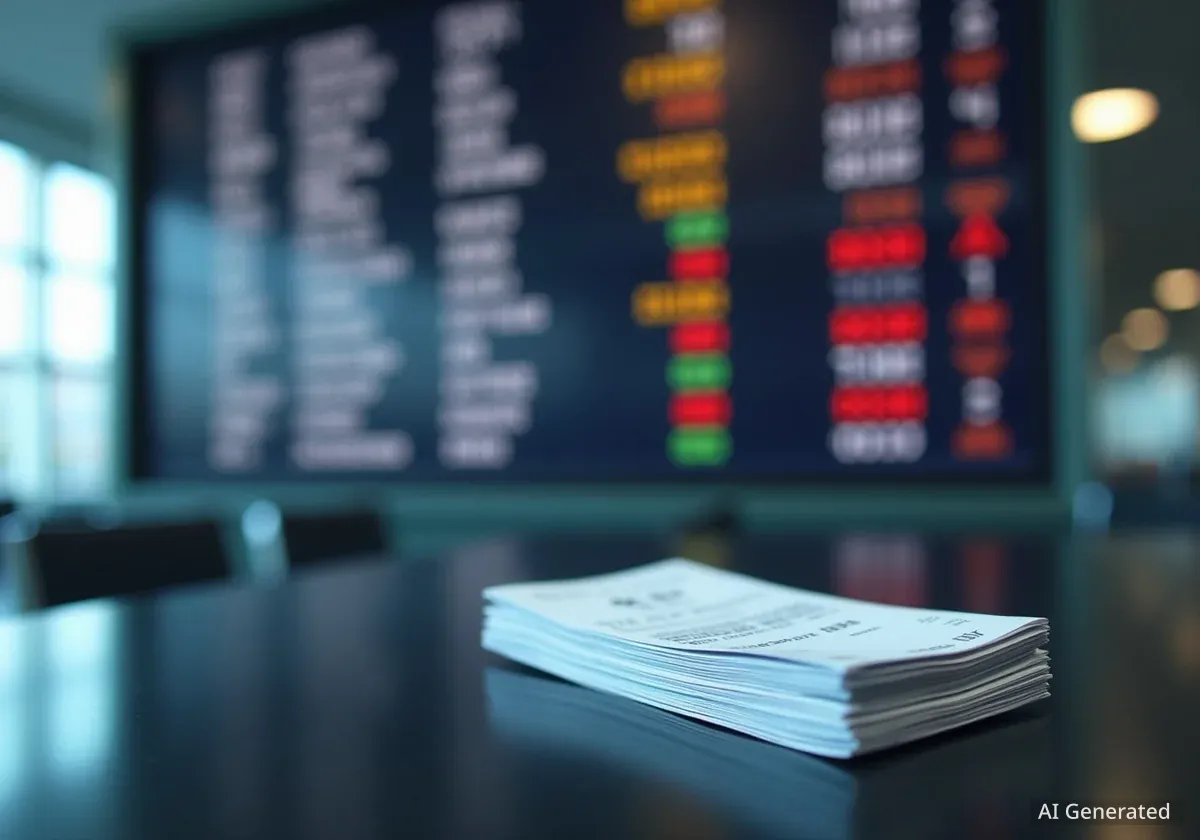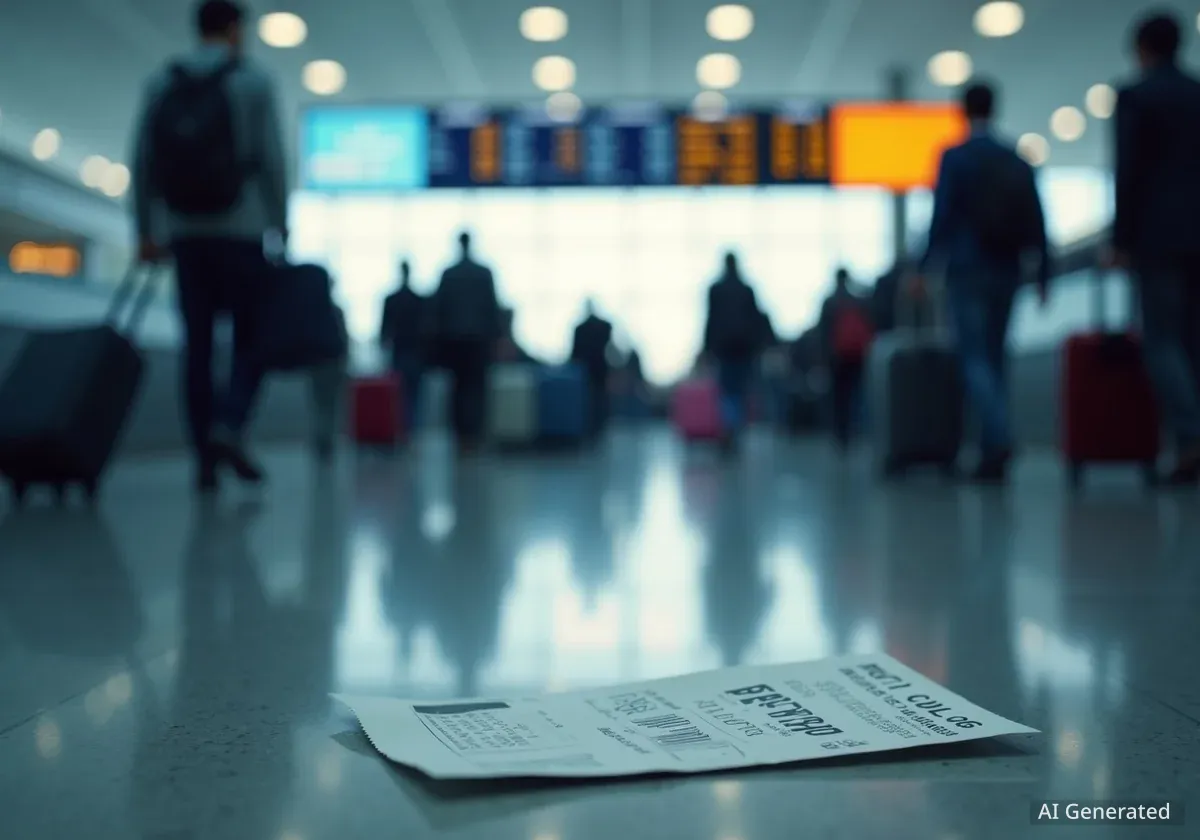Austrian Airlines has terminated an employee after an internal investigation uncovered a large-scale scheme involving the resale of over 1,000 staff flight tickets within a single year. The airline, a member of the Lufthansa Group, confirmed that the misuse of employee travel benefits occurred at Vienna International Airport (VIE). This incident highlights a serious breach of company policy and potential fraud within the aviation industry.
Key Takeaways
- An Austrian Airlines employee was dismissed for reselling over 1,000 staff flight tickets.
- The tickets were sold within a year, some for up to €2,000 each.
- Austrian Airlines is now reviewing booking systems to detect irregularities.
- Employees who misused benefits are encouraged to come forward voluntarily.
- The airline warns of strict disciplinary and possible legal action.
Investigation Uncovers Widespread Misuse
The internal investigation by Austrian Airlines revealed a significant pattern of abuse of employee flight privileges. These benefits, designed for personal use by staff and their approved companions, were instead commercialized. The airline stated that the worst case involved a single employee who managed to sell more than 1,000 tickets. This activity took place over a year, raising questions about the detection systems in place.
According to the airline, some of these discounted tickets were resold for as much as €2,000 each. Such actions not only violate company rules but also may constitute criminal fraud. Austrian Airlines is part of the Lufthansa Group, which operates with strict policies regarding employee conduct and benefits.
Fact Check
- Over 1,000 tickets: The dismissed employee sold more than 1,000 tickets.
- Up to €2,000 per ticket: Some resold tickets fetched significant prices.
- Location: The scheme was uncovered at Vienna International Airport (VIE).
Understanding Employee Flight Benefits
Employee travel benefits are a highly valued perk in the aviation sector. These typically include deeply discounted fares for staff, known as 'space-available' flights, and reduced tickets for family members or close friends. These privileges are usually part of a Product Experience Program (PEP) or similar schemes, intended to allow employees to experience the airline's services.
Austrian Airlines recently reminded its employees that these benefits are strictly for personal and approved use. They are not meant for commercial resale. The airline emphasizes that misusing these privileges undermines the integrity of the system and the trust placed in its staff.
"Such actions not only breach internal rules but may also constitute fraud, exposing violators to dismissal and criminal prosecution," Austrian Airlines stated regarding the misuse of benefits.
Context on PEP Tickets
PEP (Product Experience Program) fares are special, discounted tickets offered by airlines to their employees and sometimes to other travel industry personnel. These tickets are typically capacity-controlled, meaning they can only be used if there are available seats. Their primary purpose is to allow staff to experience the airline's services firsthand, fostering product knowledge and loyalty. They are not intended for profit or commercial resale.
Systematic Review and Call for Voluntary Disclosure
Following the discovery, Austrian Airlines announced that it is conducting a systematic review of its booking systems. The goal is to detect any further irregularities and identify other employees who may have misused their flight benefits. This proactive measure aims to prevent similar incidents in the future and reinforce compliance.
The airline is also encouraging employees who have misused these benefits to come forward voluntarily. This approach suggests a potential for reduced consequences for those who self-report before being identified through the ongoing investigations. However, the company has made it clear that those who do not come forward may face harsher penalties, including dismissal and legal action.
The scale of the alleged fraud raises questions about how one employee could book and resell such a large volume of PEP tickets without immediate detection. While most airlines require passenger name verification, potential loopholes in older booking systems or internal processes might have allowed this mass resale to go unnoticed for a period.
Broader Industry Challenge
The Austrian Airlines case, while extreme in its scale, highlights a broader challenge within the aviation industry. Misuse of employee flight benefits is not new or unique to a single carrier. In various markets, including the United States, employees sometimes assign companion passes—intended for family or partners—to unapproved individuals in exchange for payment. While this practice often bends the rules, reselling over 1,000 tickets crosses into systematic fraud.
The financial incentive for exploiting these internal benefits can be significant, even with the risk of losing employment. This incident underscores the ongoing need for airlines to regularly review and strengthen their internal controls and booking system security. Maintaining trust and integrity in staff benefit programs is crucial to prevent them from becoming a black-market product.
This situation serves as a stark reminder to all airline employees about the serious consequences of commercializing company benefits. Airlines invest in these perks to reward staff and enhance their experience, not to create opportunities for illicit profit.
- Company Policy: Benefits are strictly for personal and approved use.
- Legal Implications: Misuse can lead to fraud charges and criminal prosecution.
- Preventative Measures: Enhanced booking system reviews are now in place.
Austrian Airlines has drawn a firm line against the abuse of its ticket benefits. The dismissal of an employee for selling over 1,000 tickets demonstrates the airline's commitment to addressing this issue seriously. This case reflects a wider industry concern: balancing valuable staff perks with robust systems to prevent fraud and maintain ethical standards.





